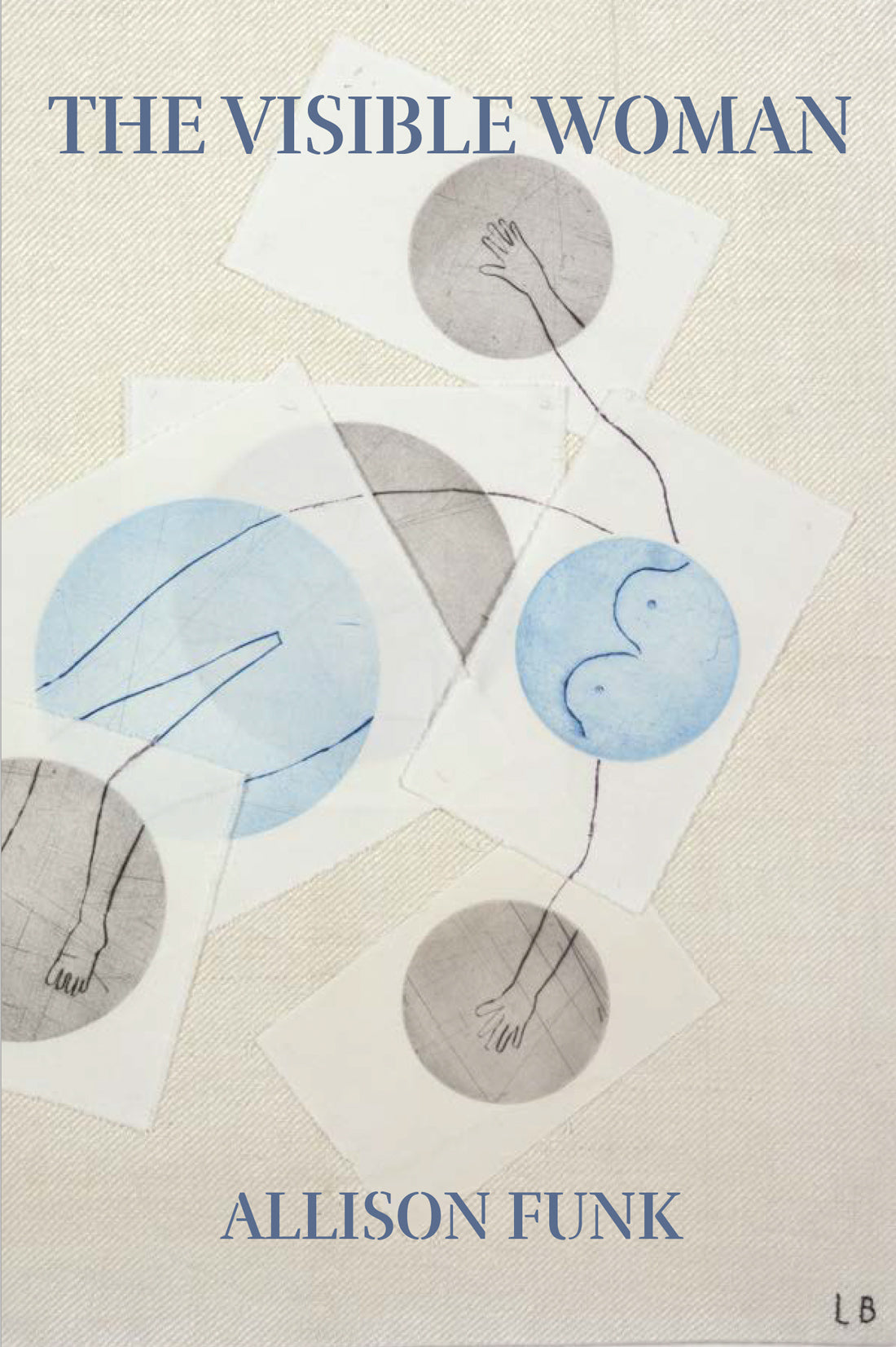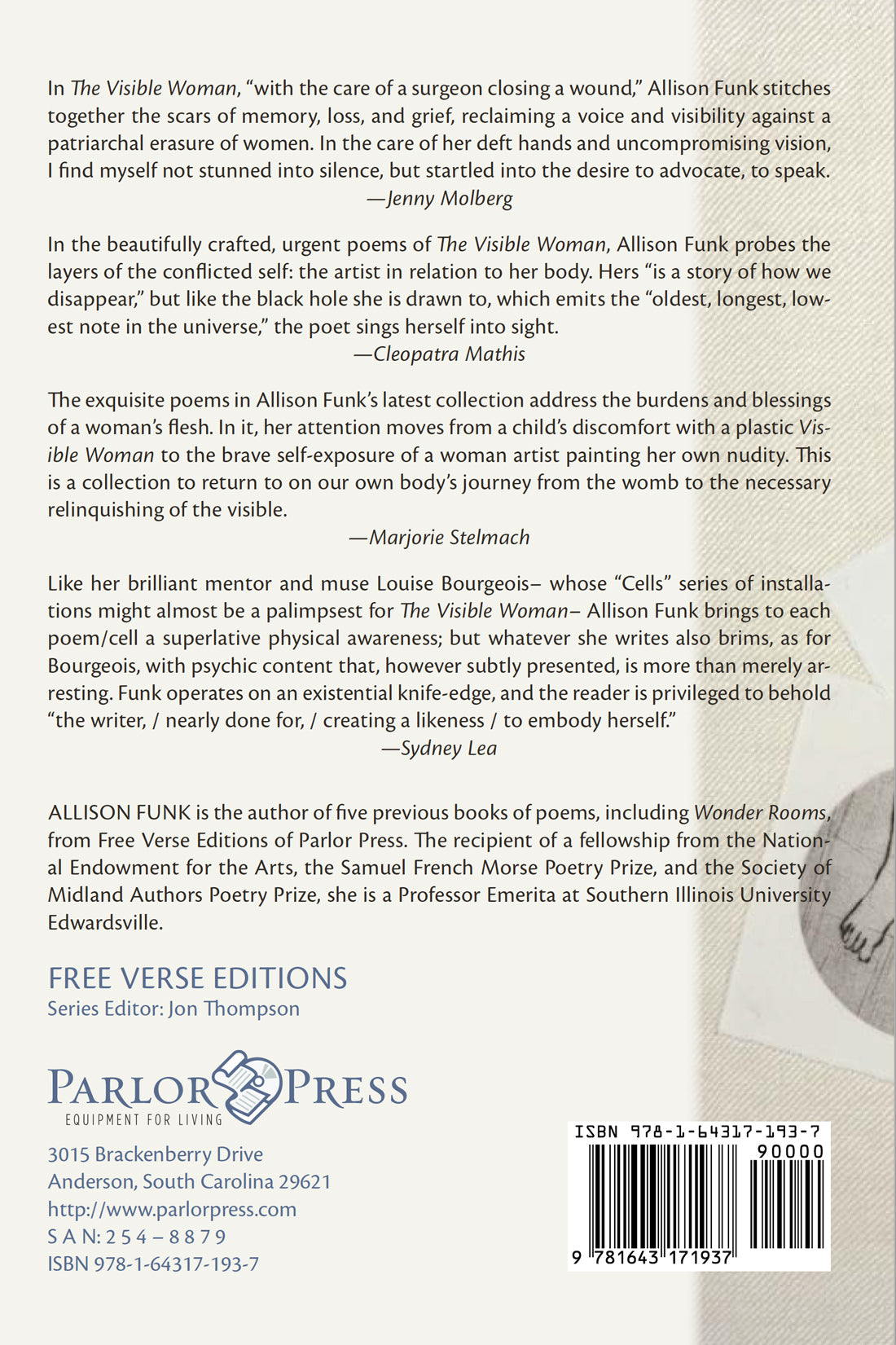Description
Allison Funk
Free Verse Editions
Edited by Jon Thompson
Information and Pricing
978-1-64317-193-7 (paperback, $13.99); 978-1-64317-194-4 (PDF, $9.99) © 2021 by Parlor Press, 72 pages
Bookstores: Order by fax, mail, or phone. See our "Sales and Ordering Page" for details.
Reviews
- "Interview // The Visible Woman: A Conversation With Allison Funk" by Jessica Freeman, Poetry Northwest, 4 June 2021.
- "Must-Read Poetry: January 2021" by Nick Ripatrazone. The Millions. 4 Jan 2021.
- Publisher's Weekly: https://www.publishersweekly.com/9781643171937 (Dec. 2020)
What People Are Saying
In The Visible Woman, “with the care of a surgeon closing a wound,” Allison Funk stitches together the scars of memory, loss, and grief, reclaiming a voice and visibility against a patriarchal erasure of women. In the care of her deft hands and uncompromising vision, I find myself not stunned into silence, but startled into the desire to advocate, to speak. —Jenny Molberg
In the beautifully crafted, urgent poems of The Visible Woman, Allison Funk probes the layers of the conflicted self: the artist in relation to her body. Hers “is a story of how we disappear,” but like the black hole she is drawn to, which emits the “oldest, longest, lowest note in the universe,” the poet sings herself into sight. —Cleopatra Mathis
The exquisite poems in Allison Funk’s latest collection address the burdens and blessings of a woman’s flesh. In it, her attention moves from a child’s discomfort with a plastic Visible Woman to the brave self-exposure of a woman artist painting her own nudity. This is a collection to return to on our own body’s journey from the womb to the necessary relinquishing of the visible. —Marjorie Stelmach
Like her brilliant mentor and muse Louise Bourgeois—whose “Cells” series of installations might almost be a palimpsest for The Visible Woman—Allison Funk brings to each poem/cell a superlative physical awareness; but whatever she writes also brims, as for Bourgeois, with psychic content that, however subtly presented, is more than merely arresting. Funk operates on an existential knife-edge, and, the reader is privileged to behold “…the writer/ nearly done for, creating a likeness/ to embody herself.”—Sydney Lea
About This Book
In The Visible Woman, Allison Funk writes of how women often disappear into the roles expected of them, becoming invisible to themselves. To fill in “the thin / chalk outline” of herself that she’s “drawn and erased” for as long as she can remember, Funk returns to the anatomical model of “The Visible Woman” she left unassembled as a child. With poems rather than the kit’s plastic organs and bones, she strives to “create a likeness / to embody herself.” In her efforts at self-representation, the poet is guided by the visual artist Louise Bourgeois—her real-life model of a woman who proved that art gives us a way of recognizing ourselves.
About the Author

Allison Funk is the author of five previous books of poems, including Wonder Rooms, from Free Verse Editions of Parlor Press. The recipient of a fellowship from the National Endowment for the Arts, the Samuel French Morse Poetry Prize, and the Society of Midland Authors Poetry Prize, she is a Professor Emerita at Southern Illinois University Edwardsville.


